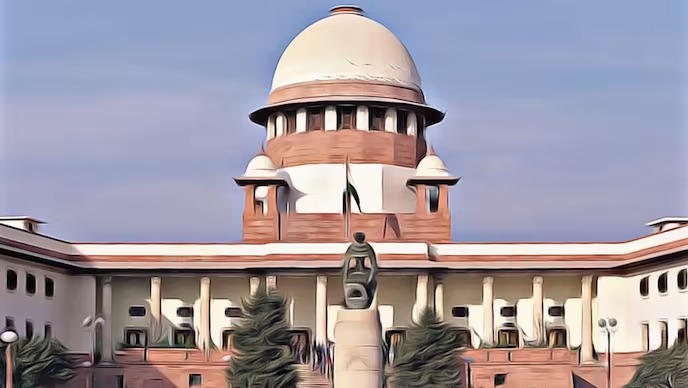Mehinder Singh Sullar, J.@mdashAs identical questions of law and facts are involved, therefore, I propose to decide indicated petitions bearing CRM No. M-38435 of 2013 titled Rajbir Singh Sodhi and others Vs. State of U.T. Chandigarh and another (for brevity "the 1st case) and CRM No. M-38248 of 2013 titled Naresh Kumar & others Vs. State of U.T. Chandigarh and another (for short "the 2nd case"), arising out of the same incident/cross-cases/impugned FIRs, by means of this common judgment, in order to avoid the repetition.
2. The matrix of the facts and material, culminating in the commencement, relevant for disposal of the instant petitions and emanating from the record is that, initially in the wake of complaint of complainant Pushpinder Kumar son of Dhaman Singh-respondent No. 2 (for brevity "the complainant in 1st case"), a criminal case was registered against the petitioners-accused Rajbir Singh Sodhi son of late Amarjit Singh Sodhi and others, vide FIR No. 641 dated 19.12.2012 (Annexure P-1), on accusation of having committed the offences punishable under Sections 147, 148, 149, 323, 325 and 506 IPC, by the police of Police Station Sector 34, Chandigarh.
3. Likewise, a cross criminal case was also registered against the petitioners-accused Naresh Kumar son of Ranvir Singh and others (in 2nd case), by means of FIR No. 644 dated 20.12.2012 (Annexure P-1), for the commission of offences punishable under Sections 147, 149, 451, 452 and 506 read with Section 120-B IPC, by the same very Police Station.
4. After completion of the investigation, the police submitted the final police reports (challans) against the accused, in both the criminal cross-cases. Accordingly, they were charge-sheeted for the commission of indicated offences by the trial Court and the cases were slated for evidence of the prosecution.
5. During the pendency of the cross-cases, good sense prevailed and the parties have amicably settled their disputes, by way of compromise dated 31.07.2013 (Annexure P-2).
6. Having compromised the matter, now the petitioners-accused (in both the cross-cases), have preferred their respective separate petitions, to quash the impugned FIRs (Annexure P-1) and all other subsequent proceedings arising therefrom, invoking the provisions of Section 482 Cr.P.C., inter alia, pleading that the parties are residents of adjoining area. Now with the intervention of the respectables persons of the locality, they have amicably settled their disputes and have entered into compromise dated 31.07.2013 (Annexure P-2 in 1st case & Annexure P-3 in 2nd case). They have already redressed their grievances. The compromise is stated to be in the welfare, benefit and larger interest of the parties. The respective complainants and injured PWs have no objection, if both the cross cases, registered against the petitioners-accused, by virtue of FIRs (Annexure P-1) are quashed. On the strength of aforesaid grounds, the petitioners-accused (in both the cases), have sought to quash the cross criminal cases and all other subsequent proceedings arising therefrom, in the manner depicted hereinabove.
7. During the course of preliminary hearing, the trial Magistrate, was directed to record the statements of all the concerned parties, with regard to the genuineness and validity or otherwise of the compromise (Annexure P-2), by a Co-ordinate Bench of this Court (Sabina, J.), vide order dated 14.11.2013 in 1st case and by a Co-ordinate Bench of this Court (Surinder Gupta, J), by means of order dated 27.01.2014 in 2nd case as well.
8. In compliance thereof, the trial Court, having recorded the statements of all the concerned persons in both the criminal cases, concluded vide its report dated 24.12.2013, that the parties have arrived at a volunteer compromise. The compromise entered between them is valid, genuine and without any kind of pressure or coercion. Sequelly, the similar report was received in the 2nd case as well.
9. Meaning thereby, it stands proved on record that the parties have amicably settled their disputes, by way of compromise dated 31.07.2013. The factum of compromise is also reiterated in the indicated report of the Magistrate.
10. What cannot possibly be disputed here is that, the law with regard to the settlement of such criminal disputes by means of amicable settlement between the parties is no more res integra and is now well-settled.
11. An identical question came to be decided by the Hon''ble Supreme Court in case
57. The position that emerges from the above discussion can be summarised thus: the power of the High Court in quashing a criminal proceeding or FIR or complaint in exercise of its inherent jurisdiction is distinct and different from the power given to a criminal court for compounding the offences u/s 320 of the Code. Inherent power is of wide plenitude with no statutory limitation but it has to be exercised in accord with the guideline engrafted in such power viz.; (i) to secure the ends of justice or (ii) to prevent abuse of the process of any Court. In what cases power to quash the criminal proceeding or complaint or F.I.R. may be exercised where the offender and victim have settled their dispute would depend on the facts and circumstances of each case and no category can be prescribed. However, before exercise of such power, the High Court must have due regard to the nature and gravity of the crime. Heinous and serious offences of mental depravity or offences like murder, rape, dacoity, etc. cannot be fittingly quashed even though the victim or victim''s family and the offender have settled the dispute. Such offences are not private in nature and have serious impact on society. Similarly, any compromise between the victim and offender in relation to the offences under special statutes like Prevention of Corruption Act or the offences committed by public servants while working in that capacity etc., cannot provide for any basis for quashing criminal proceedings involving such offences. But the criminal cases having overwhelmingly and pre-dominatingly civil flavour stand on different footing for the purposes of quashing, particularly the offences arising from commercial, financial, mercantile, civil, partnership or such like transactions or the offences arising out of matrimony relating to dowry etc. or the family disputes where the wrong is basically private or personnel in nature and the parties have resolved their entire dispute. In this category of cases, High Court may quash criminal proceedings if in its view, because of the compromise between the offender and victim, the possibility of conviction is remote and bleak and continuation of criminal case would put accused to great oppression and prejudice and extreme injustice would be caused to him by not quashing the criminal case despite full and complete settlement and compromise with the victim. In other words, the High Court must consider whether it would be unfair or contrary to the interest of justice to continue with the criminal proceeding or continuation of the criminal proceeding would tantamount to abuse of process of law despite settlement and compromise between the victim and wrongdoer and whether to secure the ends of justice, it is appropriate that criminal case is put to an end and if the answer to the above questions) is in affirmative, the High Court shall be well within its jurisdiction to quash the criminal proceeding.
Sequelly, the same view was again (recently) reiterated by Hon''ble the Apex Court in case
12. Above being the legal position and the material on record, now the short and significant question, though important, that arises for determination in these petitions is, as to whether the present criminal prosecution against the petitioners-accused deserves to be quashed in view of the compromise or not?
13. Having regard to the contentions of the learned counsel for the parties, to my mind, it would be in the interest and justice would be sub-served, if the parties are allowed to compromise the matter. Moreover, learned counsel for the parties are ad idem that, in view of the settlement of disputes between the parties, the present petitions deserve to be accepted in this context.
14. As is evident from the record that, the parties are residents of adjoining area. Now with the intervention of the respectables persons of the locality, they have amicably settled their disputes and have entered into compromise dated 31.07.2013 (Annexure P-2 in 1st case & Annexure P-3 in 2nd case). They have already redressed their grievances. The compromise is stated to be in the welfare, benefit and larger interest of the parties. The respective complainants and injured Pws have no objection, if both the cross cases, registered against the petitioners-accused, by virtue of impugned FIRs (Annexure P-1) are quashed. The factum of compromise is also reiterated in the indicated report of the trial Court.
15. Therefore, it would be seen that since, the compromise is in the welfare and interest of the parties, so, there is no impediment in translating their wishes into reality and to quash the criminal prosecution to set the matter at rest, to enable them to live in peace and to enjoy the life and liberty in a dignified manner. Hence, to me, the ratio of the law laid down and the bench-mark set out by the Hon''ble Supreme Court in Gian Singh''s and Narinder Singh''s and others cases (supra), "mutatis mutandis" is attracted to the facts of the present case and is the complete answer to the problem in hand. Likewise, the impugned FIRs (Annexure P-1) and all other subsequent proceedings arising therefrom, deserve to be quashed in the obtaining circumstances of the case.
16. In the light of the aforesaid reasons, the instant petitions are accepted. Consequently, the impugned FIRs (Annexure P-1) and all other subsequent proceedings arising thereto, (in both the cross-cases) are hereby quashed. The petitioners-accused are accordingly acquitted from the indicated criminal cases, on the basis of compromise.

